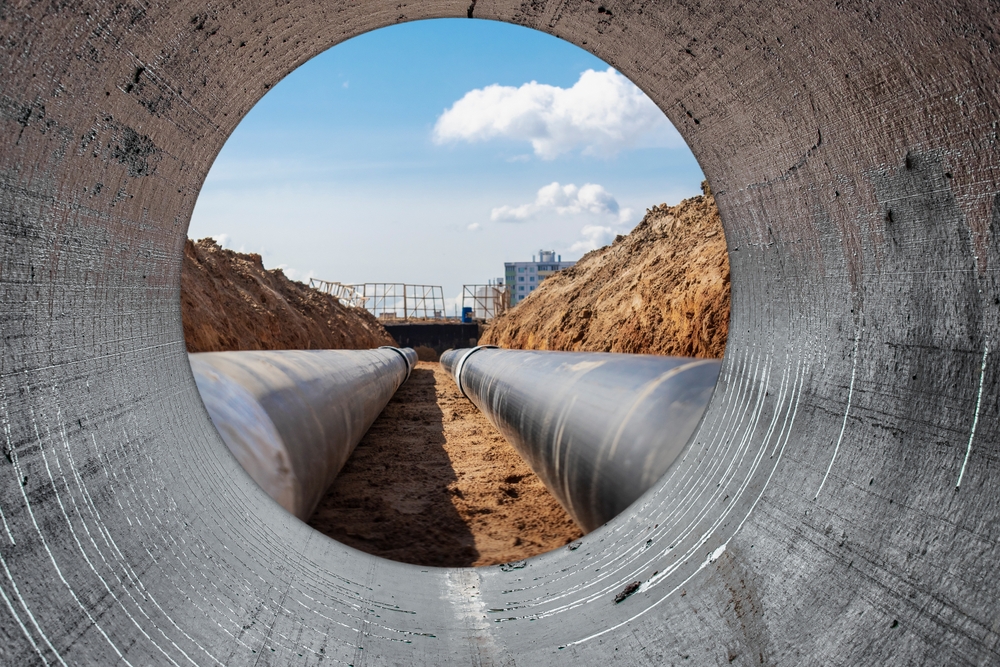Another Chapter in the Mountain Valley Pipeline Court Battle
On July 27, 2023, the U.S. Supreme Court (SCOTUS) cleared yet another legal hurdle for the controversial Mountain Valley Pipeline (MVP), a 303-mile pipeline with capacity to carry 2 billion cubic feet of natural gas daily from northern West Virginia to southern Virginia. The reprieve, while only temporary, may give the project enough time to complete construction on the final 3.5-mile corridor through the Jefferson National Forest, which is on land controlled by the federal government.
The MVP is constructed and owned by Mountain Valley Pipeline, LLC (Mountain Valley), which is a joint venture between EQM Midstream Partners LP, NextEra Capital Holdings Inc., Con Edison Transmission Inc., WGL Midstream, and RGC Midstream LLC. EQM Midstream Partners will operate the pipeline and own a significant interest in the joint venture.
MVP project facts
According to the America First Policy Institute (AFPI), a nonprofit, nonpartisan research institute, key facts about the project include:
- The project is expected to employ more than 2,500 workers.
- Construction will provide $131 million in tax revenues to Virginia and West Virginia.
- The MVP will provide an additional $45 million in annual tax revenue to Virginia and West Virginia.
- The project has been delayed for years due to lawsuits and the lengthy, bureaucratic approval process.
- The June 2023 debt ceiling agreement gave the project congressional authority to proceed and was supposed to exempt the project from further judicial review.
- Because of these delays, the projected costs for the MVP nearly doubled from an original projection of $3 billion to more than $6 billion.
“The pipeline received authorization from the Federal Energy Regulatory Commission in June to restart construction,” reports Reuters. “The pipeline is considered key to unlocking more gas supplies from Appalachia, the biggest shale gas-producing basin in the United States. It aims to deliver gas to existing pipelines and service other customers in the U.S. mid-Atlantic and Southeast regions.”
MVP controversy
According to environmentalists, problems with the project include:
“MVP is an orphan pipeline in search of a purpose,” continues the NRDC. “There still doesn’t appear to be a market for its gas. While its owners state the pipeline ‘has secured firm commitments for the full capacity of the MVP project under 20-year contracts,’ we believe MVP gas is only 35.5 percent committed. Here’s why the 100 percent claim is misleading:
“Four corporate customers appear to have committed to buy 35.5 percent of MVP’s capacity. These companies are utilities or affiliates of utilities, so some day they might actually use gas from MVP. But the remaining 64.5 percent of MVP’s capacity has been claimed by EQT, America’s largest natural gas producer. EQT doesn’t consume natural gas in its line of business, so it’s a safe bet that it will never need to buy gas from a pipeline.”
- It increases the use of natural gas, a leading fossil fuel and greenhouse gas (GHG) emitter. “It’s been estimated that the full life cycle [GHG] emissions (excluding construction emissions) generated by the MVP mainline alone would be almost 90 million metric tons annually. This is equivalent to the emissions from 23 average U.S. coal plants or over 19 million passenger vehicles driven every year,” the NRDC article adds.
- It has the potential to harm soil and water quality. “Construction on the MVP mainline has already severely harmed clean water sources across Appalachia,” the NRDC reports. “To date, the owners have agreed to pay over $2 million in penalties for more than 300 water quality violations cited by Virginia and West Virginia. And now there are allegations of even more violations.”
- It’s a high-risk construction area. “It turns out that no other large pipeline has ever been approved across this many miles of steep slopes and high landslide risk areas,” according to the NRDC. “MVP was designed to pass through more than 200 miles of ‘high landslide susceptibility,’ and steeper slopes typically mean more threats to clean rivers and streams as well as increased risks of pipeline explosions.”
Debt ceiling deal
President Joseph Biden Jr. signed the Fiscal Responsibility Act of 2023 on June 3, which was passed to raise the federal debt ceiling.
“Approval of the [MVP] was included in the debt limit deal struck in May between President Joe Biden, a Democrat, and House of Representatives Speaker Kevin McCarthy, a Republican,” the Reuters article states. “Its inclusion was championed by Democratic Senator Joe Manchin of West Virginia, a key vote in the Senate and one of the largest recipients in Congress of donations from fossil fuel…
Read More: Another Chapter in the Mountain Valley Pipeline Court Battle


